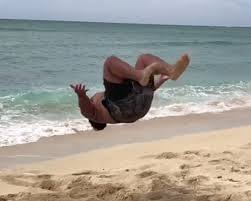Best advice I have for a diet beginner is to keep it separate (& simple).
Though nutrition and exercise go hand-in-hand, I advise my clients starting out on a new diet plan, to keep it separate from their workout goals. It’s been established that losing fat is math; you MUST be in a caloric deficit to lose fat.
Because of this, diet and exercise are paired together to more easily reach a deficit (or greaten the deficit making the fat loss faster), but if you’re just getting started, don’t over complicate the formula by trying to add in your TDEE(total daily energy expenditure) + NEAT (non exercise activity thermogenesis).
That equation you referenced above is likely working off of your BMR (basal metabolic rate) and then estimating activity burn based on lifestyle. It’s hard to say how accurate that burn rate is, and this is why I advise working strictly off caloric consumption control for new dieters.
It gets very complicated, very quick trying to guess activity level and burn if you aren’t wearing an accurate tracker 100% of the time, or consulting with an expert. When new dieters start to do this and try to add in their workout burns to adjust their daily consumption plan, it often leads to a miscalculation and the deficit gets lost.
Instead, try using a BMR CALCULATOR to establish a daily consumption baseline and be conservative when selecting your “activity level.”
Work off that strictly when it comes to your nutrition. The activity you do complete, is then an extra bonus! It’s something you end up enjoying more, rather than overthinking or counting every bit to change daily calorie intake.
As a diet beginner, don’t bite off more than you can chew (pun intended!) Keep it simple, remembering calories in (FOOD), must be less than calories out (MOVEMENT/ACTIVITY). Extra activity and workouts will help you reach fat loss goals quicker, but don’t overcomplicate burn calculations.
The TL;DR
It’s universal. 1lb of fat = 3,500kcals. So to lose that 1lb you NEED to be in a weekly caloric deficit of ~3,500. Use exercise as a way to contribute to the deficit, but don’t work an entire calculation off of it, since it’s easy to misjudge energy expenditure, especially as a beginner.
Instead, create a baseline solution that is conservatively based in your everyday burn. Aim for -500kcal deficit per day on that. Movement activity is a helpful increase to speed progress along.
As always, it’s best to consult directly with an RD or Certified Nutrition Specialist to get the specific numbers and a deficit program that safely works for you.


